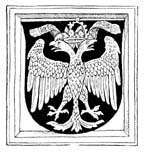
Finding God’s Will in Each Moment
VITAL WORKS RECONSIDERED, #55
The Sacrament of the Present Moment.
By Jean-Pierre de Caussade.
A good literary antidote for the anxiety provoked by current political and religious upheaval is The Sacrament of the Present Moment by the French Jesuit priest Jean-Pierre de Caussade (1675-1751). At first glance, the title of this slender work may puzzle the would-be reader who is aware that the Church has seven sacraments. To what “present moment” sacrament is Fr. Caussade referring? Whether it is this enigma, or an inspiration of grace, that leads one to read the book, by the time the last page is turned, the title makes sense. Its entire spiritual lesson is encapsulated in one simple phrase: “All that matters is what the will of God ordains each moment.”
The Sacrament of the Present Moment is a preservation of talks Fr. Caussade gave to the Visitation Nuns at Nancy, France, between 1729 and 1739. He did not intend these talks for a general audience. The religious sisters nevertheless memorialized these conferences, which included moments of prayer spontaneously interspersed throughout the talks, all of which were first published in book form in 1861 under the title Abandonment to Divine Providence.
Just as his message left an indelible impression on these 18th-century French nuns, Fr. Caussade’s message resonates today, especially among those who seek to do God’s will but acutely feel an absence of His presence in their lives. Caussade’s premise is that, just as Our Lady’s answer to the Angel Gabriel “summed up the whole mystical teaching of her ancestors,” so too should our lives reflect “Thy will be done.” Like Mary, “who looked upon everything that she was called upon to do or suffer each moment as a gift of God, who always fills with blessings a heart that is nourished neither by the world nor by fantasy, but by him alone,” we should also recognize each moment as “nothing less than God fulfilling his mighty purpose.” With this realization, our perspective on the ordinary becomes super-ordinary and sacramental, allowing us to see how “divine action cleanses the universe, pervading and flowing over all creatures. Wherever they are it pursues them. It precedes them, accompanies them, follows them. We only have to allow ourselves to be borne along on its tide.”
You May Also Enjoy
Is there such a thing as "Catholic drama"? William Shakespeare and Jean Racine, compared and contrasted, provide two fascinating case studies.
GKC did believe creation and its Creator are good, but not that the majority of people would always choose rightly or that any merely human structure would endure.
Our rewriting of the great drama of life, which should proceed like a mysterious tale full of wonder and engagement, is a sad soliloquy.

